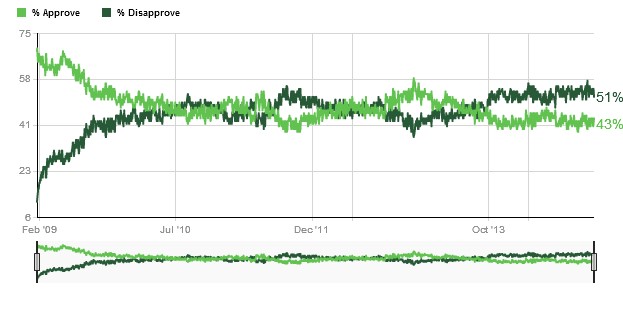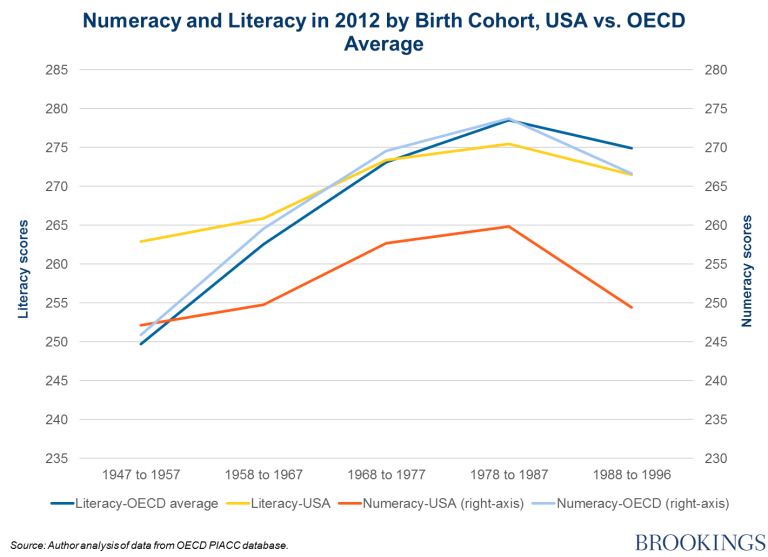By Mia Fatuzzo ’15, News Section Editor
There was something important about two Tuesdays ago, right? The day before cookie Wednesday? Three days after the Common Application deadline? All true. But last Tuesday, November 4th, also marked midterm elections.
After a year, nearly four billion dollars, and countless stickers and signs, the midterms are (mostly) over. So what happened? Recall that, in the 2012 election, Barack Obama was reelected President, the Democrats retained control of the Senate, and the Republicans held onto the House of Representatives. On Tuesday, the Republicans soundly won control of the Senate. The G.O.P. also made gains in the House of Representatives and prevailed in several tight gubernatorial races. Kentuckian Mitch McConnell is expected to replace Harry Reid of Nevada as the Senate Majority Leader. He, along with Speaker of the House John Boehner, will be charged with facilitating collaboration between the now entirely Republican Congress and the Democratic President.
On the fourth, voters were faced with choices about not only representatives, but also ballot issues and, while the Republicans certainly triumphed, stances typically considered “conservative” did not. Alaska, Arkansas, Nebraska, and South Dakota all voted to increase the minimum wage, an issue that President Obama proposed in his 2014 State of the Union Address. Alaska, Washington D.C., and Oregon voted in favor of recreational marijuana. Though recreational marijuana has been supported by politicians from both parties, it is largely favored among Democratic voters. Two states also rejected restrictions on abortion: Fetal “personhood” laws were defeated in both Colorado and North Dakota. Only Tennessee’s amendment, which altered the state’s constitution to make it easier for lawmakers to restrict access to abortion, passed.
In fact, polls show most voters align with Democrats on a lot of issues. The majority of the electorate prefers Democratic policy on minimum wage, health care, and immigration. The Democrats are more trusted to help the middle class and women and even to manage the economy. Americans agree more with Democrats on the issues of abortion, gay marriage, and the environment. Republicans, however, have an edge when it comes to cutting government programs, the federal budget deficit, and gun control.
So why does the G.O.P. now boast control of both houses of Congress? There are several primary reasons. First off, Republican candidates succeeded in linking their democratic opposition with the unpopular President Obama. President Obama’s approval ratings have slipped somewhat steadily since he took office and are currently hovering around 42%. A meager 9% of Republicans and 35% of independents currently approve of the way that he does his job. The president has been plagued with trouble at home and abroad: voters disapprove of Obama’s handling of the crisis in Syria, and the bungled implementation of the Affordable Care Act and the Veterans Health Administration scandal also tarnished his reputation.
Democratic candidates tried to distance themselves from Obama. Alison Lundergan Grimes, who ran unsuccessfully against McConnell, refused to state in interviews if she had voted for Obama. Democratic Senator Mark Udall of Colorado, who was unseated by his Republican opponent on Tuesday, comically insisted that “the White House—when they look down the front lawn—the last person they want to see coming is me.” Republican contenders, however, pushed back. For example: “Alison Grimes says this election is not about her support for Barack Obama and his failed policies…but Obama himself says a vote for Alison is a vote for his policies” and “Obama’s candidate for senate in Kansas? Greg Orman. A vote for Greg Orman is a vote for the Obama Agenda.”
Republicans also took advantage of the unusual nature of midterm elections. Midterms are quirky in that a large portion of the population simply chooses not to vote. Ohio, for example, reported an impressively low rate of voter turnout this year: 39.99%. To be fair, other states with more hotly contested elections had more enthusiastic electorates—John Kasich coasted to victory in the Ohio gubernatorial election—but general turnout was frankly pathetic compared with rates from 2012 or 2008. Low voter turnout in the midterm elections typically favors Republican candidates; young adults, African Americans, and Hispanics, demographic groups that have traditionally been Democratic strongholds, have wider turnout gaps than other groups.
The Republican Party also succeeded in silencing their more conservative members. After two election cycles of debilitating gaffes from extremists such as Todd Akin and Richard Mourdock, the party strove to “place [its] best players on the field.” This year, the party vetted candidates meticulously and prepared abundantly. Establishment-backed candidates largely beat their more-conservative opponents in primary elections. Republican operatives then worked hard to groom their candidates for the national spotlight.
Many reporters painted the 2014 midterms as a referendum on President Obama, his policies, and even the Democrats. While the election demonstrated a nation-wide dissatisfaction with Obama’s leadership, it did not not reveal an electorate prepared to cast aside six years of movement, on both the national and the state level, towards a more progressive America. The electorate is dissatisfied with Washington—exit polls taken on Tuesday showed that about eight out of ten Americans disapprove of how Congress is doing its job—and looking for its government to work together competently. Voters rightly sense that our nation can accomplish far more if its leaders, old and new, come together instead of bickering across party lines.
Sources:
http://www.cnn.com/2014/11/04/politics/midterm-exit-polls-1/
http://www.washingtonpost.com/wp-srv/special/politics/2014-midterms/turnout/
http://www.cnn.com/2014/10/03/politics/obama-words-republican-ads/
http://www.cnn.com/2014/10/13/politics/grimes-mcconnell-kentucky-senate-debate/
http://www.gallup.com/poll/116479/barack-obama-presidential-job-approval.aspx
http://www.washingtonpost.com/blogs/the-fix/wp/2014/05/01/on-issue-after-issue-voters-favor-democrats-and-for-now-they-dont-want-to-vote-for-them-either/
http://fivethirtyeight.com/datalab/voters-are-rational-in-midterm-elections/
http://elections.nytimes.com/2014/liveblog?hp&action=click&pgtype=Homepage&module=above-banner-region®ion=above-banner-region&WT.nav=above-banner-region
http://www.politico.com/2014-election/results/map/ballot-measures/#.VFrLfMmiGSo







